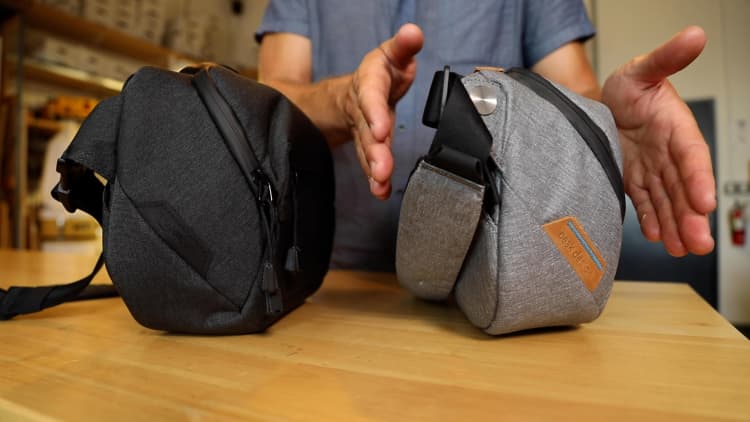Federal regulator says Amazon can be held responsible for faulty goods sold on its marketplace
A judge said Amazon's fulfillment program for sellers give it "far-reaching control" over the products sold on its platform.

Packages move along a conveyor belt at an Amazon Fulfillment center on Cyber Monday in Robbinsville, New Jersey, on Nov. 28, 2022.
Stephanie Keith | Bloomberg | Getty Images
Federal regulators have determined that Amazon can be held responsible for defective goods sold by third-party merchants on its online marketplace, rejecting the company's position that it's merely an intermediary between consumers and sellers.
In a landmark order released Tuesday, the U.S. Consumer Product Safety Commission said the agency unanimously agreed Amazon "fits squarely" within the definition of a distributor of goods, "and therefore bears legal responsibility for their recall."
As part of the agency's decision, Amazon is required to develop a plan to notify purchasers and the public about the product hazards, as well as offer shoppers refunds or replacements for the affected products.
Amazon's marketplace, which hosts millions of third-party sellers, now accounts for approximately 60% of the company's e-commerce sales. While the marketplace has helped Amazon bring in record revenue, it has also proven to host counterfeit, unsafe and even expired goods. The company has previously said it invests hundreds of millions of dollars per year to ensure products sold are safe and compliant.
The decision addresses a thorny issue that's been debated for years. In numerous lawsuits, Amazon has maintained it's only the conduit between buyers and sellers on its marketplace and that it's not involved in the sourcing or distribution of products sold by third-party sellers, removing it from liability. It's been a successful defense for Amazon in the past, including in a 2018 case concerning the purchase of a faulty hoverboard that exploded and burned down an Amazon shopper's house in Tennessee. In other cases, federal courts and legislators have said Amazon should be held liable.
The issue arose again when the CPSC sued Amazon in 2021 to force it to recall hundreds of thousands of products that it deemed hazardous. At issue were 418,818 goods sold through Amazon, including faulty carbon monoxide detectors, hairdryers without electrocution protection and children's sleepwear that posed a burn risk.
Amazon argued in its response to the agency complaint that it should be characterized as a third-party logistics provider, saying it only receives and transports the products sold through its site.
Still, Amazon removed all the products flagged by the CPSC and prohibited merchants from selling them on its marketplace. The company told shoppers who purchased the items of "potential safety issues" concerning the items, told them to destroy the items and offered them a credit.
The CPSC called these actions "inadequate," saying the company should've offered refunds to incentivize consumers to destroy or return the product.
In Tuesday's ruling, the agency said an administrative law judge dismissed Amazon's argument that it should be classified as a third-party logistics provider. The judge pointed to Amazon's Fulfilled by Amazon service, where sellers ship inventory into the company's warehouses, and those products are stored until they're purchased.
This program gives Amazon "far-reaching control" over the products sold on its platform, the judge said.
"Amazon cannot sidestep its obligations under the [Consumer Product Safety Act] simply because some portion of its extensive services involve logistics," the decision states. "Amazon must therefore comply with the CPSA to protect consumers from injury."
Representatives from Amazon didn't immediately respond to a request for comment.


 Fransebas
Fransebas 

























![Are You Still Optimizing for Rankings? AI Search May Not Care. [Webinar] via @sejournal, @hethr_campbell](https://www.searchenginejournal.com/wp-content/uploads/2025/06/1-1-307.png)




